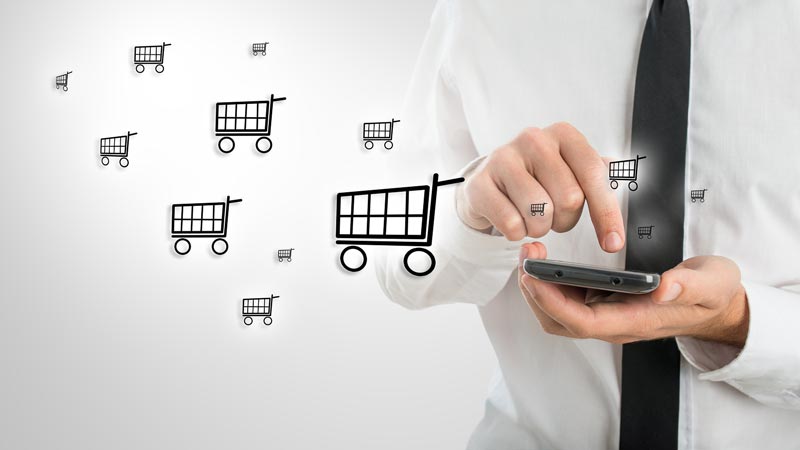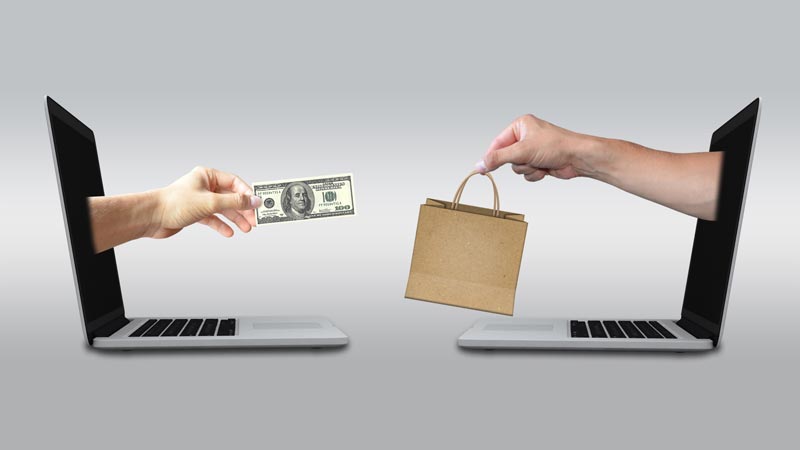هناك أهمية كبيرة لمعالجة قيود المبيعات والمشتريات في ادارة المخازن، وتلك أحد الأشكال المحاسبية الهامة التي تساعد في تفسير وتلخيص المعلومات المحاسبية الخاصة بالشركة بشكل دقيق. ومن خلال قيود المبيعات والمشتريات ستتمكن الشركة من معرفة وضعها المالي ونتيجة أعمالها وما إذا كانت تربح أو تخسر. وبالتالي معالجة الأمر وطرح الحلول المناسبة في حالة وجود أية خسائر، لذلك تحتاج أي شركة لإجراء قيود المبيعات والمشتريات وذلك وفقاً للعملية الحسابية الجرية في الوقت الفعلي بالشركة. وفي هذه المقالة سنوضح بشيء من التفصيل قيود المبيعات والمشتريات في المخازن وخطوات كل منهما، وكذلك طريقة حساب المبيعات والمشتريات.
كيفية عمل قيود المبيعات بالخطوات

أول شيء سنعرضه في قيود المبيعات والمشتريات بمقالنا هو توضيح كيفية عمل قيود المبيعات، والتي من خلالها ستتمكن الشركة من معرفة وتلخيص وتفسير المبيعات الخاصة بها.
وكل هذا مفيد في تحليل الوضع المالي الخاص بها ومعرفة مدى ربحيتها أو الخسائر التي تتحملها. وتمتلك كل شركة مخزون محدد من السلع التي يتم بيعها للعملاء.
وينقسم ذلك المخزون إلى مخزون متوفر في بداية الفترة المحاسبية، وهو ما يُسمى بمخزون بداية الفترة، وآخر متوفرة في نهاية الفترة المحاسبية وهو ما يُطلق عليه المخزون النهائي.
وحتى يتم جرد هذا المخزون ومعرفة ما يتوافر منه يتم عمل قيود المبيعات والتي من خلالها تم عملية الجرد والتسويات الجردية التي توضح ما تم بيعه وما هو متاح حتى الآن، وكذلك لتحديد سعر أو تكاليف المباعة.
وإليك كيفية عمل قيود المبيعات بالخطوات ضمن توضيح قيود المبيعات والمشتريات:
1. المبيعات
عندما تقوم الشركة ببيع مجموعة من البضائع فإنها تقوم بفتح حساب مبيعات منفصل خاص بها، وتوضح فيه ما أخذته الشركة من قيمة جراء بيع البضائع. ويكون القيد الخاص به هو ح/ المبيعات، والذي يتم استخدامه فقط عند بيع البضائع، وفي تلك الحالة يتم التسجيل باسم الأصل.
2. البدلات ومردودات المبيعات
بعد أن يتم بيع البضائع وتسليمها للمشتري قد يلاحظ المشتري وجود جزء من تلك البضائع غير متطابق مع المواصفات التي اتفق عليها مع الشركة. وفي تلك الحالة فإنه يقوم بإرجاع البضائع وتكون تلك هي حالة إرجاع المبيعات.
أو عدم إرجاع البضائع ولكن في المقابل يتنازل البائع عن جزء من ثمن البضائع، وفي تلك الحالة يتم فتح حساب يُسمى بـ H / Sales و Returns و Allowances. ويتم خصم هذا الحساب من أي مرتجعات مبيعات.
3. مصاريف البيع
هناك مصاريف أخرى تتعلق بالمبيعات، وتعتمد المعالجة المحاسبية لمصاريف البيع تلك على طبيعة الاتفاق الذي تم إجراءه بين البائع والمشتري. ويكون مكان التسليم محدد يتم الاتفاق عليه أيضاً بين الطرفين.
وإذا كان التسليم سيتم في مكان البائع فسيقوم المشتري بتحمل التكاليف الخاصة بنقل البضائع للمستودعات، أما إذا كان التسليم في مكان العميل فسيتحمل البائع التكاليف المتعلقة بنقل البضائع للمستودعات التابعة للمشتري.
وفي تلك الحالة سيتم فتح حساب لتكاليف نقل المبيعات وهو ضمن قيود المبيعات أيضاً.
4. تخفيضات على البيع
وهي بمثابة خصومات على البيع ولها أكثر من نوع، كالخصم التجاري والذي يتم معالجته بنفس الطريقة التي استخدمت في الشراء، كما أن هذا الخصم يُحسب ولكن لا يُسجل.
والنوع الثاني من تخفيضات البيع هو الخصم على الكميات، والذي يستفيد منه العميل ويقوم البائع بفتح حساب أو قيد خاص به وهو H / Quantity Discount. وتلك هي الطريقة التي يمكن من خلالها حساب قيود المبيعات ضمن قيود المبيعات والمشتريات.
كيفية عمل قيود المشتريات بالخطوات
ضمن مقالنا حول قيود المبيعات والمشتريات، وبعد أن تعرَّفنا على كيفية عمل قيود المبيعات بالخطوات سننتقل الآن لتوضيح كيفية عمل قيود المشتريات. وهي أحد أهم القيود في قيود المبيعات والمشتريات التي يتم إجرائها ضمن إدارة العمليات المحاسبية للشركة لمعرفة أداءها المالي.
والمشتريات هي عمليات الشراء التي تمت بغرض الحصول على العناصر لاستخدامها في الصنع أ, البيع وتحقيق الأرباح الخاصة بالمشروع، وإليك أهم قيود المشتريات:
1) المشتريات النقدية، والتي تم الدفع فيها نقداً وليس آجلاً، وقد تأخذ أكثر من شكل حسب الطريقة التي تم من خلالها الدفع نقداً، حيث:
- في حالة المشتريات من خزينة أو صندوق الشركة يكون القيد كالآتي:
من ح / المشتريات
إلى ح / الصندوق
- في حالة المشتريات من البنك يكون القيد كالآتي:
من ح/ المشتريات
إلى ح/ البنك
- في حالة المشتريات من البنك وأيضاً خزينة أو صندوق الشركة يكون القيد كالآتي:
من ح/ المشتريات
إلى المذكورين
ح/ الصندوق
ح/ البنك
2) المشتريات الأجلة، وهي التي لا يتم دفعها نقداً، وتأخذ الشكل التالي في تسجيل القيود الخاص بها:
من ح/ المشتريات
إلى ح/ الموردين
3) مردودات المشتريات، والتي يتم فيها استرجاع بعض المشتريات لوجود مشكلة بها أو عدم مطابقتها مثلا، وتأخذ الشكل التالي في تسجيل القيد:
من ح/ النقدية أو الموردين (في حالة المشتريات الآجلة)
إلى ح/ مردودات المشتريات
4) مسموحات المشتريات، والتي يتم فيها تخفيض ثمن المشتريات التي وُجد بها مشكلة ما أو عدم مطابقتها بدلاً من استرجاعها، وتأخذ الشكل التالي في تسجيل القيد:
من ح/ النقدية أو الموردين (في حالة المشتريات الآجلة)
إلى ح/ مسموحات المشتريات
طريقة حساب المبيعات والمشتريات

بعد أن تعرَّفنا على كيفية حساب قيود المبيعات والمشتريات وتسجيلها، سننتقل الآن لتوضيح طريقة حساب المبيعات والمشتريات رياضياً لمعرفة قيمتهما.
وذلك الأمر ضروري حتى تتمكن الشركة من معرفة مقدار الأرباح التي تجنيها أو الخسائر التي تتكبدها. وفي إطار حديثنا عن قيود المبيعات والمشتريات، سنبدأ بتوضيح طريقة حساب المبيعات ثم طريقة حساب المشتريات وصافي المشتريات:
1. طريقة حساب المبيعات
فيما يتعلق بطريقة حساب المبيعات فهناك حالتان يمكن وفقاً لهما حساب المبيعات ومعرفة تكاليفها، حيث:
- فى حالة الجرد المستمر: يمكن حساب المبيعات من خلال حساب تكاليف المبيعات على مدار السنة.
- فى حالة الجرد الدوري: يمكن حساب المبيعات من خلال حساب تكاليف المبيعات المبيعات فى نهاية السنة بعد جرد مخزون آخر الفترة، ويكون:
- تكلفة المبيعات = مخزون أول المدة + صافي المشتريات – مخزون آخر المدة.
2. طريقة حساب المشتريات
أما بالنسبة للمشتريات فيتم حسابها من خلال حساب تكلفة المشتريات من فاتورة المورد، بجانب إضافة المصروفات الأخرى المتعلقة بـ نظام ادارة النقل والشحن. ويمكن حساب صافي المشتريات مباشرة من خلال الصيغة التالية:
- صافي المشتريات = تكلفة المشتريات من فاتورة المورد + مصروفات نقل وشحن المشتريات – الخصم المكتسب – مسموحات المشتريات.
وفي نهاية مقالنا تعرًّفنا على أهم قيود المبيعات والمشتريات الأساسية، وكذلك كيفية حساب المشتريات وصافي المشتريات، بجانب حساب المبيعات. وعملية تسجيل قيود المبيعات والمشتريات أساسية لأي شركة لمتابعة أدائها المالي جيداً.

أحدث التعليقات